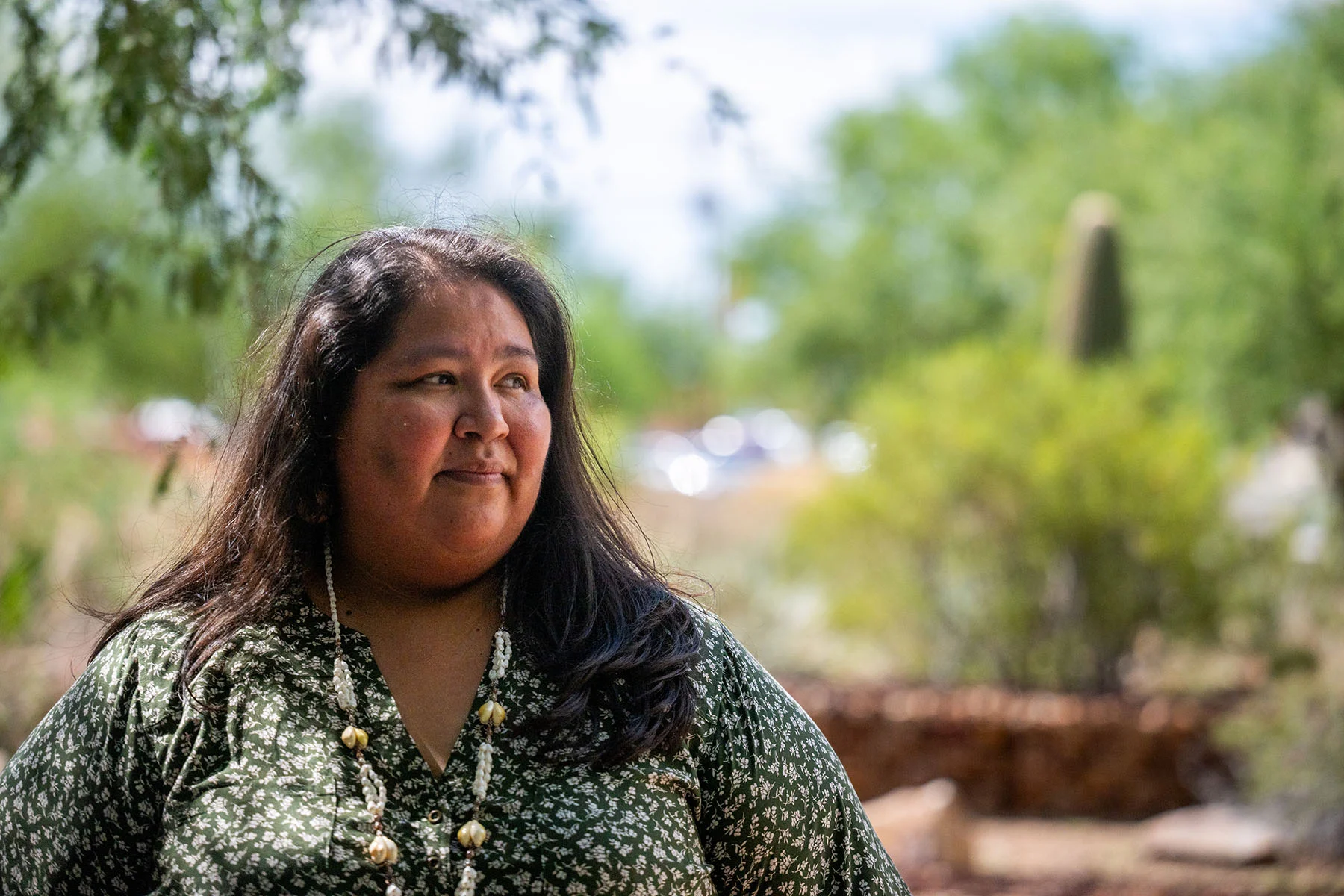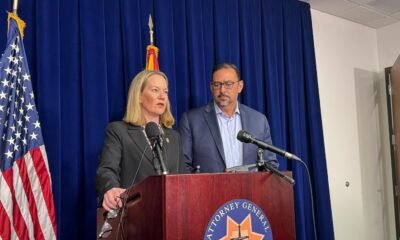Election 2024
Native Election Official Shatters Voting Barriers in Arizona

As Arizona’s July primary draws near, Pima County Recorder Gabriella Cázares-Kelly is making her presence known. Alongside her sister Elisa, she canvassed in Three Points, a rural community located between Tucson and the Tohono O’odham Nation, where they grew up. The area, home to approximately 5,000 residents, leans conservative and features a mix of mobile homes and ranch-style houses that blend into the Sonoran desert landscape.
Using a canvassing app designed to identify registered Democrats, Cázares-Kelly stopped at a trailer marked on her phone. With old Volkswagens rusting nearby and a “beware dog” sign on the fence, she left her campaign materials at the door when no one answered. Continuing their effort, they approached another home, where a little girl greeted them, followed by a cautious woman. “Hi, my name is Gabriella. I’m actually the county recorder,” she said warmly, explaining her role and the importance of her reelection campaign.
As the first Indigenous person to hold a countywide office in Pima, Cázares-Kelly’s campaign emphasizes early voting and voter registration as essential components of her job. Alongside her own campaign, she promotes her lifelong friend April Ignacio, who is running for a Pima County Board of Supervisors position. Their shared goal is to enhance rural and Indigenous representation in a county where approximately 4 percent of residents identify as Indigenous. In a battleground state, these votes could play a crucial role in upcoming elections.
During her canvassing, one interaction stood out. A woman expressed her frustration about not being able to vote due to felony convictions. Cázares-Kelly quickly informed her about a free legal clinic that could help restore her voting rights, shifting the conversation from despair to hope. “They’ll help you fill out the paperwork,” she assured, clearly recognizing the power of this newfound knowledge.
Despite the challenges of reaching skeptical voters in such neighborhoods, each interaction is a step forward for Cázares-Kelly. She often encounters reluctance; during one visit, the word “shotgun” on a yard sign prompted a hasty retreat. Nonetheless, the warmth of her community engagement resonates. Her commitment to voter education stems from her cultural roots and a deep understanding of the barriers that Indigenous populations face in participating in democracy.
While the Democratic-leaning Pima County makes her reelection likely, Cázares-Kelly is driven by a mission to represent voices often overlooked. The Indigenous vote, significant in tight races, played a role in President Biden’s narrow win in 2020, highlighting the potential impact of engaged constituents in the upcoming election cycle.
As she continues her outreach, one resident named Ann Gail shared concerns about mail-in ballots following the false claims of a stolen 2020 election. Cázares-Kelly emphasized the integrity of the voting process but respected Gail’s decision to vote in person, reinforcing the need for trust in the electoral system. Gail expressed her commitment to mobilize her neighborhood, marking a positive response to Cázares-Kelly’s efforts.
Cázares-Kelly’s journey into voting advocacy began unexpectedly. Encouraged by a friend in 2016 to help register students at Tohono O’odham Community College, she faced hurdles in navigating the complexities of voter registration, particularly on tribal lands. She soon found herself advocating for systemic changes necessary for her community’s inclusion in the electoral process.
When the previous Pima County Recorder, F. Ann Rodriguez, announced her retirement, Cázares-Kelly recognized the urgency of stepping up. The prospect of an anti-Native successor motivated her to act. Launching her campaign amid the COVID-19 pandemic posed unique challenges, but her determination propelled her forward, garnering substantial community support.
Pima County voters ultimately embraced her, allowing Cázares-Kelly to win her seat by a staggering margin of over 80,000 votes. “For me to watch my best friend make history, it’s still very emotional,” said Ignacio, reflecting on Cázares-Kelly’s groundbreaking victory.
Her popularity increased as voters recognized the significant role of county recorders post-2020 election, following disinformation campaigns regarding election integrity. Cázares-Kelly responded by creating a communications team to counteract such narratives, fostering transparency and trust in the electoral process through public outreach efforts.
As an advocate for accessibility, Cázares-Kelly ensures her office accommodates all voters, particularly those with disabilities. She has implemented measures to assist visually impaired individuals and has worked tirelessly to address the specific needs of her constituents, transforming the electoral landscape.
In a recent engagement, she spoke to a group of soon-to-be graduates determined to navigate the challenges of running for office. Reflecting on her political journey, she emphasized the importance of advocating for Indigenous voices within governmental policies. “It’s our duty to protect our community,” she remarked, showcasing her commitment to empowering future leaders.
Cázares-Kelly remains focused on the important work ahead. As she balances her role with her advocacy for a secure and inclusive electoral environment, she embodies the spirit of community engagement crucial for democracy. “There is so much work to do,” she asserted with unwavering enthusiasm.


















